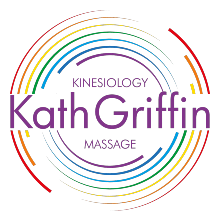So what actually is Kinesiology?

If you’ve been to see me for Kinesiology you’ll know that it works. You will have experienced this extremely clever holistic therapy, which identifies the root cause of your issue and targets it head on to bring you back to good health. But I thought it might be useful to explain, in simple terms, how it works and why it’s so effective.
I discovered this life-changing treatment through my own personal experience. When my son was six years old a very trusted friend suggested Kinesiology to help improve his reading and handwriting. At the time it was completely new to me; the practitioner I saw specialised in helping children with learning difficulties and used Kinesiology techniques to identify a movement-based programme specifically targeted for him. After 18 months the improvements were incredible and I was hooked. I decided to train as a Brain Gym Consultant, a movement-based therapy, and learnt Kinesiology techniques as part of the course. 20 years on and I’m not only successfully practising this wonderful treatment but also teaching it at a foundation level.
Pronounced kin-easy-ology, it has the potential to change your life. I have yet to meet someone who hasn’t felt better after a single Kinesiology session, or benefited from dramatic improvements as the result of an individually tailored course.
The science
Kinesiology looks at your entire system addressing four key areas of health; emotional, nutritional, structural and energetic (the meridian system). The first step is for me to establish the end result; more energy, less pain, improved sleep, better functioning or just a little more va-va-voom. I then use muscle testing (more on this later) as a tool to identify any imbalances and pinpoint where the problem originates.
Once the source of the health issue has been identified the real work begins, but it may not be where you think. For example, if you have a pain in your knee, typically you would think your knee needs fixing, but have you ever thought that it might be something else causing the pain? Your muscles, organs and emotions are all connected. Each muscle has an energetic link to a meridian (Qi – pronounced chee) which also has an energetic link to an organ system. It could be the muscle in the knee causing the pain which is a structural issue and may require gentle structural realignment, reflex massage and/or supplements; it may be an emotional issue such as stress which could be improved by a realistic change in lifestyle; or perhaps even less obvious, it could be nutritional. But how? The knee is linked to the small intestine so the pain could be caused by an imbalance in your digestive system. If this was the case, I would recommend some dietary adjustments and/or supplements.
What is muscle testing?
Muscle testing gives me access to your entire system. By gently pressing against certain muscles, I can identify which area is causing the problem as the muscle will either hold its position or move. Think of your body as a computer, recording all of your life experiences. Muscle testing taps into this information and helps me understand exactly what is happening inside. It then enables me to use specific techniques that will help the body’s natural healing process. Everyone has their own life story and that is why Kinesiology is so effective, as it looks at you individually and determines exactly what you need for optimum health.
Is Kinesiology for you?
People often ask me if Kinesiology is the right therapy for them. My answer is always the same; it can benefit everyone. I may see two people on the same day, both with neck pain, and the techniques I use to help them are completely different. But you don’t necessarily need to be in pain or feel unwell; maintaining good health and wellness is the key to a fulfilled life. Kinesiology can establish what your body needs at any given time to keep it firing on all cylinders.
